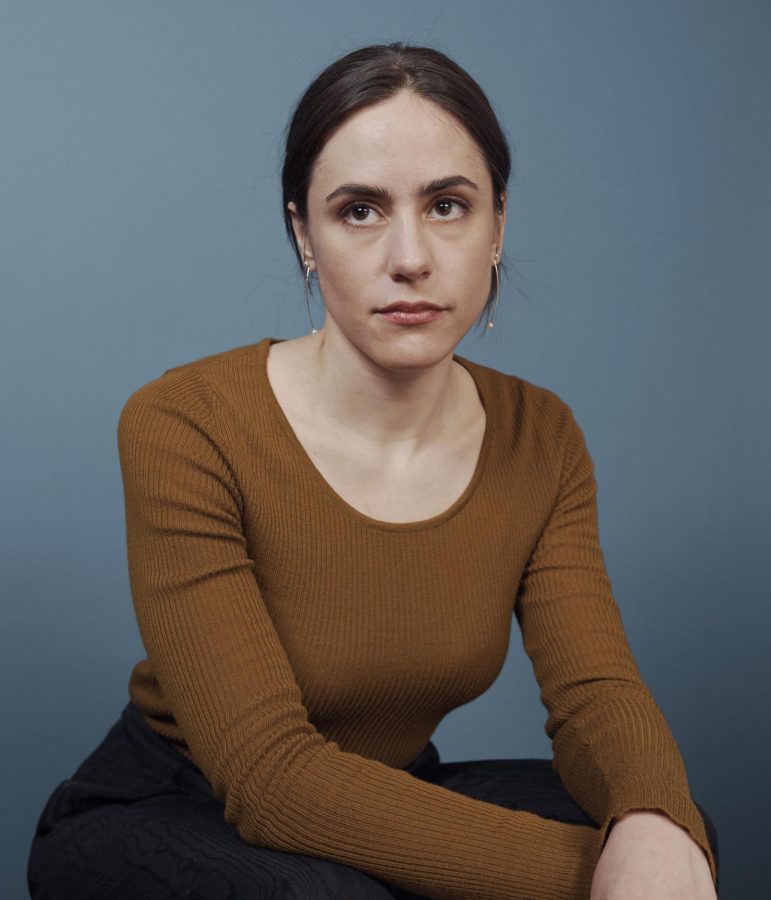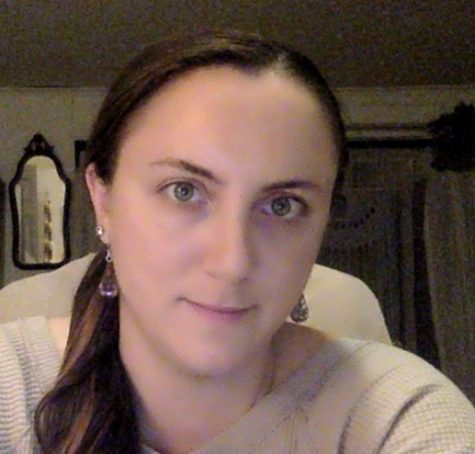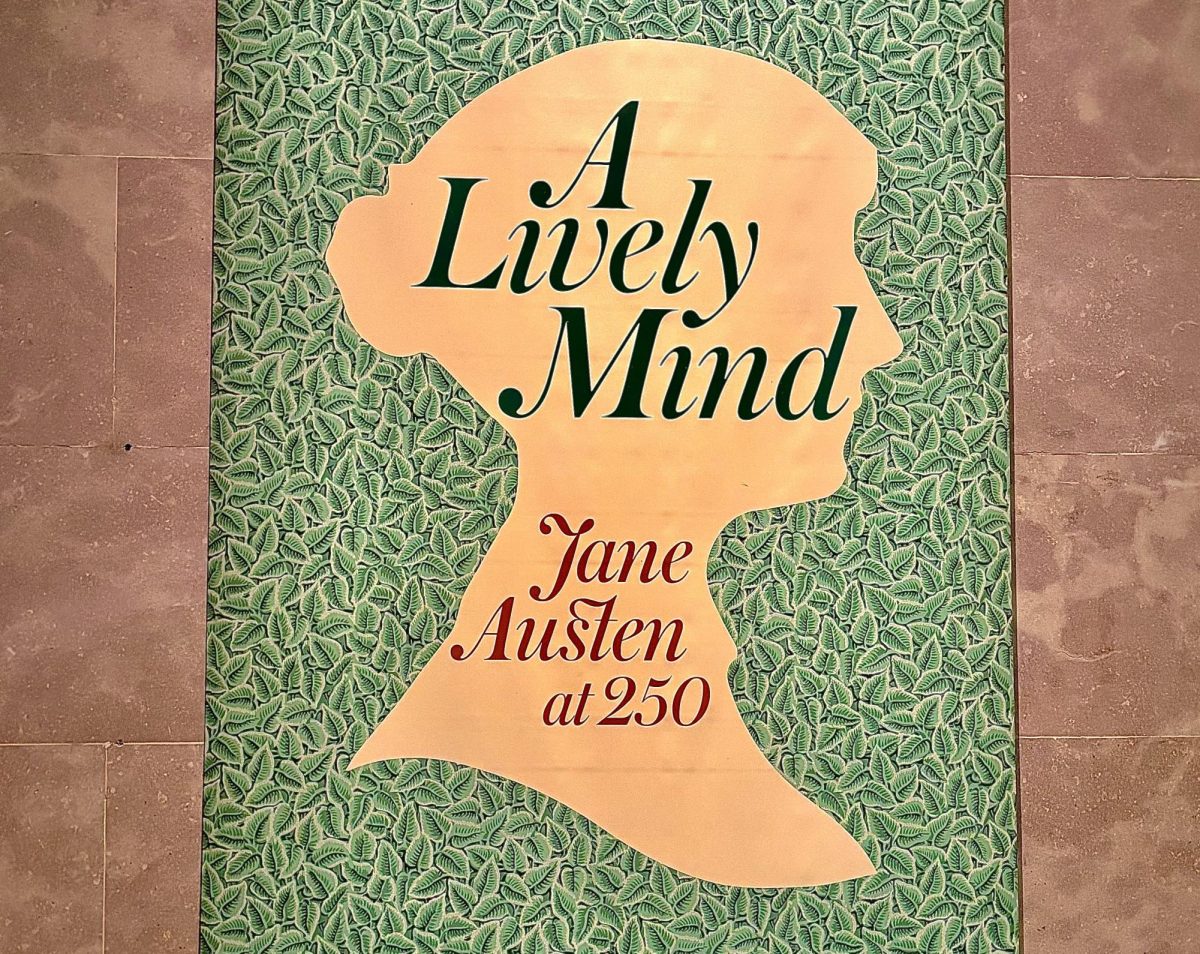Molly Fischer of the New Yorker shares her notes on magazine writing
Molly Fischer, New Yorker staff writer
September 6, 2022
While Zooming with student journalists from around the country, Molly Fischer offered a very reassuring point: With every story, she thinks she has nothing useful to say, no interesting information to offer, and no good ideas on the subject. It happens to her every time, even as a seasoned veteran of magazine writing.
“Literally, every story I write I hit a point where it’s maybe a week before I’ve produced a first draft and I start saying things like, ‘There’s nothing, I haven’t found anything interesting yet. It’s boring, I don’t have enough to say. I don’t know how I’m going to put this together,’ ” Fischer said.
Fischer, now a staff writer at the New Yorker, has an impressive list of credentials, so she knows what she’s talking about. Her dad was a newspaper reporter while she was growing up so she’s always been exposed to this world. She started out working in the arts section of her college newspaper and followed that up with unpaid internships at magazines during college. From one such internship at the NY Observer, she landed a job with them. Her work history has been even more impressive since then.
Throughout the interview, she emphasized taking lots of notes as a reporter, focusing on what you’re interested in, and saying yes to any story that comes your way. She told the group about her long history in journalism and her perspective on the differences between magazine and newspaper writing.
“In some ways magazine writing and online writing feed into each other in a good way because they both are — and this is not true of all online writing — but very often online writing is a matter of communicating a kind of viewpoint or argument or distinctive perspective and figuring out how to build something new out of material that you’ve collected as a reader and a consumer of news,” said Fischer. “You’re not necessarily trying to be the first person to break a piece of news, but you are interested in finding a new perspective on it.”
Fischer said she is constantly taking notes on ideas for stories and that she separates them into big ideas, small ideas, and half-baked ideas in her Google Doc and Notes app. She keeps track of anything that comes to mind, no matter how small, because patterns can appear from nowhere after a while.
One thing she said was particularly enlightening for the students: “Your own thoughts are boring to you because they’re in your head, but other people haven’t heard them yet.” She says she gets this advice from her husband when she’s having a miserable time putting her stories together.
She reviewed her work history over the course of the hour-long interview and recalled taking stories she had no interest in, just to show she could go with the flow – like when she covered the real estate section for the New York Observer.
Fischer also worked for N+1 and New York Magazine, where she edited and wrote for The Cut and hosted The Cut on Tuesdays podcast, before her current job at the New Yorker. She said the New Yorker runs a tighter ship than New York Magazine, where she had more freedom with word counts.
She said the proudest she’s ever been of a story was when she wrote about chronic lyme disease a few years ago. It took a particular balance of sympathy and skepticism to write clearly. But it also was the kind of story that allowed her to approach it with an I-know-nothing-about-this attitude, which facilitates a good interview.
For good interviews, she recommends teasing things out of the interviewee that goes beyond the natural social mood of response. Instead of saying, “mhmm” when someone says, “You know how it is,” ask how it is. And when you’re doing a profile, keep interviewing until you don’t get any new names as recommendations for who else to interview.
Fischer eventually chose magazine writing because what drew her to writing was having a specific voice, using the literary qualities reporting can take on, and building something new out of material you’ve collected as a reader and consumer.
She said the most rewarding part of the job is when finding out and understanding about something new and you’re able to communicate that
In recent years she’s written about J.K. Rowling, Joan Didion, Maggie Nelson, and I.P. TV. She said she’s lucky she doesn’t have a beat because it gives her an open-ended mandate to write about what interests her.
That’s the key, according to Fischer – follow your interests. The best writing comes out of genuine interest.
–Sept. 6, 2022–
























Mike Jones • Jun 1, 2024 at 9:30 pm
When it comes to finding a new perspective, it helps to have binocular vision. Being monolingual is like having only one good eye. The easiest route to binocular vision is to learn Esperanto.